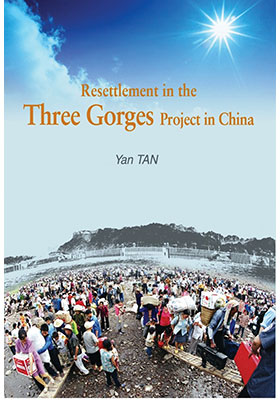Resettlement in the Three Gorges Project
(三峽工程的安置)
ISBN : 978-962-209-856-5
January 2008
310 pages, 6″ x 9″
- HK$350.00
Ebooks
The construction of the Three Gorges dam in China involves the relocation of more than 1.2 million people over 17 years. This resettlement project has special demographic, social, economic and political characteristics, and has profound influence on urban and rural life.
This book examines the factors influencing the sustainability of the Three Gorges rural resettlement, and the problems and coping strategies of the relocation programme implemented over the period 2000–06. The author employs a multi-method approach—using geographical information system, interviews, social surveys and documentary analysis—to analyse the different dimensions of the resettlement. There are insightful evaluations of the impacts on the displaced families and on the host communities, of government reactions to resettlement-related problems, and of the current status of the relocation programme in meeting the original objectives. New findings in this book will contribute to the understanding of resettlement issues and associated socio-economic transformations in China.
“The Three Gorges Dam is not only the world’s biggest, it also required the world’s largest ever development-caused population displacement and resettlement. This mega-resettlement has confronted giant hurdles, entailed enormous debates inside and outside China, spawned many bold and innovative solutions on the ground, and radically changed the social, human and physical geography of an immense area. Yet we still know much too little about it. Courageously and meticulously, Yan Tan undertook to study this complex process. She develops insightful analyses of its macro- and, particularly, micro-variables, on families’ daily lives, on women and marriages, on farming and housing, on economics and culture, on a multitude of aspects little known and still subject to controversy and opposing interpretations. The author opens up new windows for understanding and offers empirical ‘food’ for further thinking and in-depth debate.” —Michael M. Cernea, Research Professor of Anthropology and International Affairs, George Washington University
“Yan Tan’s book sheds new light on the important process of forced migration as a result of mega projects. Such migrations are of increasing significance in Asia and this study provides many insights into the difficulties associated with this type of displacement and the need to develop effective policies and programs to protect those displaced.” —Graeme Hugo, Federation Fellow, Professor of Geographical and Environmental Studies, the University of Adelaide
“The first book published outside China on the early stages of the Three Gorges resettlement, this will have both policy and theoretical importance for planners of large infrastructure projects and for academics interested in the contentious social, environmental and resettlement issues associated with development.” —Thayer Scudder, Anthropology Professor Emeritus, California Institute of Technology, author of The Future of Large Dams
“This book is a perceptive analysis of the complex and divisive issues involved in population resettlement caused by major development projects such as the Yangzi Gorges dam. Involuntary resettlement on this scale generates complex social and environmental challenges. It makes huge demands on communities and governments. Dr Tan’s book provides great insights into these issues and will be of interest to both China specialists and to a wider audience.” —Andrew Watson, Emeritus Professor, the University of Adelaide, and Ford Foundation Representative for China



